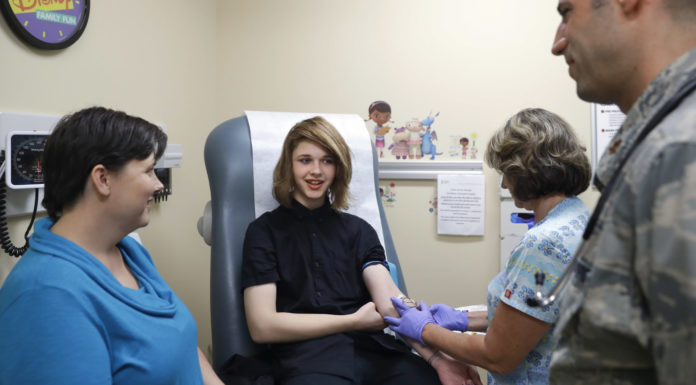(The Human Rights Campaign’s Healthcare Equality Index is pushing health care facilities to align with a “radical gender ideology,” and four congressmen are working to do something about it.
Sens. Thom Tillis, R-N.C., Marco Rubio, R-Fla., Cindy Hyde–Smith, R-Miss., and J.D. Vance, R-Ohio, recently introduced the Protecting Conscience in Healthcare Act.
It would prohibit federal or state government agencies and federally funded health facilities from requiring employees to promote a gender ideology tied to the movement involving lesbian, gay, bisexual, transgender and other cultural identities based around sexual preferences and bedroom fetishes.
“This common-sense legislation protects health care facilities and professionals from being forced to advocate for political and social agendas that violate their medical judgements and strongly held religious beliefs,” Tillis said in a statement. “This bill defends crucial medical and religious exemptions for hospitals, health clinics, and their employees so they can focus on patient care, not be required to advance radical political agendas.”
The legislation was spawned from a Healthcare Equality Index the Human Rights Campaign leverages to measure policies and approaches to “gender medicine” in hospital systems. While hospitals have no obligation to adopt the policies, news reports have highlighted more than 2,200 health systems that have coordinated with the powerful, far-left activist group to comply.
The index, funded by Pfizer and PhRMA, a trade association that lobbies on behalf of pharmaceutical companies, assigns scores to hospitals and other health care facilities based on a 100-point scale that says it measures the “equality and inclusion of their LGBTQ+ patents.”
The scale includes points for displaying symbols, soliciting and using patients’ preferred pronouns, trainings for “LGBTQ+ issues,” and whether nondiscrimination policies mention “sexual orientation” or “gender identity.”
Other criteria also tie into LGBT, including health disparities, promotion of services, hiring and whether health records capture gender identity.
To earn a perfect score, hospitals must also provide treatments for gender dysphoria that they provide for other medical conditions, such as puberty blockers used to treat precocious puberty.
The index does not explicitly mention medical conscience exemptions, but penalizes hospitals that allow “discriminatory treatment that is in conflict with their non-discrimination policy.”
The Protecting Conscience in Healthcare Act, Senate Bill 2797, would prohibit health care or government employers from requiring transgender trainings, workshops or events as a condition of employment.
It also prohibits those employers from requiring employees to identify pronouns or to use preferred pronouns that “conflict with the employee’s religious or moral beliefs, or the employee’s understanding of the relationship between sex and identity.”
Hyde–Smith said it was a violation of basic First Amendment religious freedom—a matter that the U.S. Supreme Court recently upheld in a major ruling this past June, although the court has recently delivered big wins to the LGBT agenda too.
“Coercing health care workers to abandon their religious belief to accommodate a radical gender agenda is wrong,” Hyde–Smith said in a statement. “Hospitals and clinics, and those who work in them, should stay focused on care without being pressured to pay undue attention to fringe activists.”
SB2797 is among a flood of legislation on the state and national level this year focused on transgender issues and gender transitions, particularly for minors.
Other legislation introduced in the U.S. Senate this session would prohibit doctors from performing gender transition procedures on minors, and the use of federal funds for those procedures. The legislation faces an uphill climb in a Senate with a Democratic majority.
At least 22 states have adopted legislation through mid-August to outlaw gender transition treatments for minors, according to the Human Rights Campaign.

